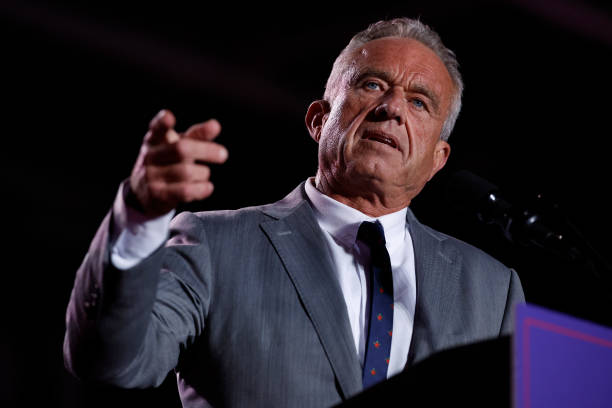RFK Jr.'s Senate Confirmation Hearing for HHS Secretary

Quick Introduction
Robert F. Kennedy Jr., son of Senator Robert F. Kennedy and nephew of President John F. Kennedy, appeared before the Senate Finance Committee for his confirmation hearing as the nominee for Secretary of Health and Human Services (HHS). The hearing, held on Tuesday, January 29, 2025, provided a platform for senators to question Mr. Kennedy about his views on a range of critical health care issues.
Nutrition and Chronic Disease
Mr. Kennedy emphasized the importance of nutrition in disease prevention and management. He highlighted the alarming rise in chronic diseases among Americans and the associated costs. He expressed his passion for promoting healthy lifestyles and educating Americans about the impact of diet on their well-being.
Mr. Kennedy's focus on nutrition resonated with many committee members, who expressed their shared concern about the link between diet and chronic illnesses. They discussed potential collaborations to integrate nutrition-based interventions into federal health care programs.
Vaccine Safety
The topic of vaccine safety generated significant discussion during the hearing. Mr. Kennedy clarified his stance on vaccines, stating his support for their role in health care and emphasizing his commitment to ensuring their safety and effectiveness. He addressed previous statements, noting that some had been taken out of context or misrepresented.
Some senators expressed concerns about Mr. Kennedy's past statements on vaccines, seeking further clarification and assurances about his current position. Mr. Kennedy reiterated his commitment to science-based decision-making and transparency in vaccine research and development.
Rural Health Care
The challenges facing rural health care were a recurring theme throughout the hearing. Mr. Kennedy acknowledged the financial and workforce shortages plaguing rural hospitals and expressed his commitment to collaborating with Congress and relevant agencies to find solutions.
Senators representing rural states highlighted the impact of hospital closures and limited access to maternity care in their communities. They sought assurances from Mr. Kennedy that he would prioritize these issues and work towards improving health care access for rural Americans.
Other Healthcare Issues
The hearing also covered various other critical health care topics, including:
- Medicaid: Senators questioned Mr. Kennedy about his views on potential Medicaid reforms and the importance of ensuring access to care for low-income Americans.
- Medicare: Discussions focused on improving Medicare programs, including the potential role of cooperatives and health savings accounts.
- Prescription drug prices: Mr. Kennedy expressed his commitment to working with Congress to lower prescription drug costs for Americans.
Transparency and Accountability
Throughout the hearing, Mr. Kennedy emphasized the importance of transparency and accountability within HHS and other public health agencies. He pledged to make these agencies more responsive to Congress and the American people. He has also committed to removing conflicts of interest from agencies.